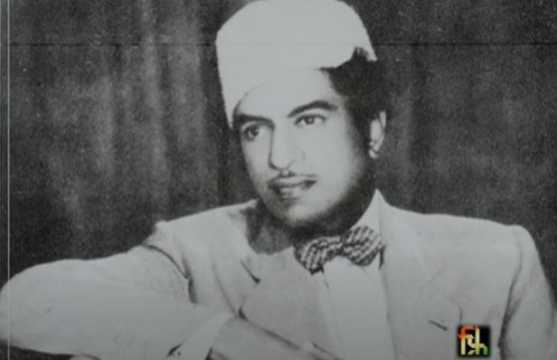
Keyur Seta
Mumbai, 14 Jul 2021 14:37 IST
Written and directed by Sanjit Narwekar, the 41-minute movie is packed with interesting anecdotes about the late director.

Dhundiraj Govind Phalke aka Dadasaheb Phalke is known as the father of Indian cinema. It was because of him that cinema took root in the country and flourished as a business. If there was someone who took forward Phalke’s legacy and ensured that Indian cinema reached greater heights, it was Shantaram Rajaram Vankudre aka V Shantaram.
Films Division’s documentary V Shantaram: The Pioneering Spirit showcases the filmmaker’s entire journey. Written and directed by Sanjit Narwekar, the 41-minute movie is packed with interesting anecdotes about the late filmmaker.
V Shantaram, pioneer of woman-orientated cinema – Anniversary special
Shantaram’s first tryst with cinema came when his cousin and mentor Baburao Pendharkar, the iconic actor, director and producer, took him to the Maharashtra Film Company to meet the celebrated filmmaker Baburao Painter. Later on, he learnt theatre under the legendary Balgandharva.
Shantaram worked in the railways for some time but, unsurprisingly, he quit after a while since his interest lay in cinema. He joined Painter and initially worked in various departments, also playing small roles as an actor. Meanwhile, he acquired mastery in editing and became the first specialized editor. It was just a matter of time before he became a full-fledged filmmaker, with the movie Netaji Palkar (1927).
From that point, there was no looking back for Shantaram, who went on to make iconic films such as Ayodhya Ka Raja (1932, also the first Indian bilingual feature), Amar Jyoti (1936), Manoos (1939), Shejari (1941), Dr Kotnis Ki Amar Kahani (1946), Jhanak Jhanak Payal Baje (1955), Do Aankhen Barah Haath (1957), Navrang (1959) and Pinjra (1972).
The film narrates Shantaram’s journey in a seamless and fast-paced manner. Some documentaries tend to be dry but this one is as good as a biopic. It touches on various aspects and moments in Shantaram’s life and presents them lucidly.
The narration by Harish Bhimani — who voiced the omniscient personification of time in BR Chopra’s classic television serial Mahabharat — commands your attention.
The film also features several prominent figures who either knew Shantaram or studied his career such as actress Durga Khote, director Ram Gabale, film historian Bapu Watve, filmmaker Sumitra Bhave and Dr Shriram Lagoo.
V Shantaram: The Pioneering Spirit brings to light some facts about the late artiste that take you by surprise. Moti Gidwani’s Kisan Kanya (1937) is known as the first colour film in Indian cinema. But four years prior to that movie, Shantaram made the nation's first true colour film, Sairandhri. However, as the film didn’t turn out well, it was canned.
The film ends aptly with the song ‘Ae Maalik Tere Bande Hum’ from Do Aankhen Barah Haath (1957).
V Shantaram: The Pioneering Spirit was part of an online festival created by the Films Division, titled Masters’ Constellation, and held from 9–11 July 2021.
Watch the documentary here:
You might also like

Review English
Lorni - The Flaneur review: Adil Hussain brings a hypnotic intensity to his character
Wanphrang K Diengdoh’s film is an experiment in genre and form, blending history and modernity...

Review English
Shut Up Sona review: Unsettling yet inspiring journey of a female artiste trying to effect change
Directed and shot by Deepti Gupta, Shut Up Sona is a comprehensive response to all the bullies and...

Review English
Is It Too Much To Ask? review: Trans women's hunt for a house turns into a quest for acceptance
Directed by Leena Manimekalai, the film raises several existential questions while exposing and...

